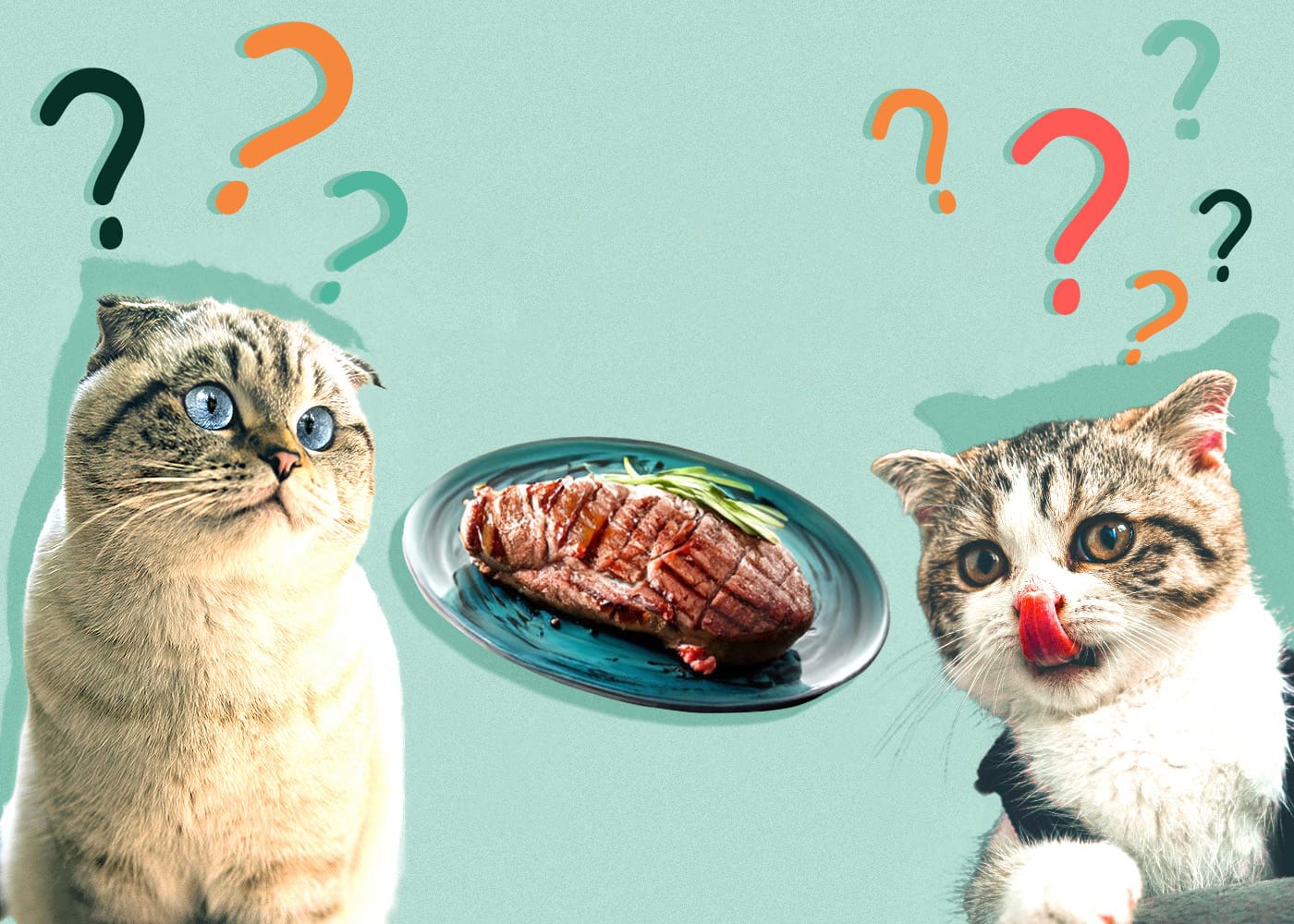Introduction
Cats are known to enjoy eating meat, which makes people wonder if they can consume the same foods as humans. The thought of sharing a juicy steak with our cats makes us curious about its nutritional value, potential benefits, potential risks, and whether a cat's digestive system can handle it.
Steak Nutritional Composition
Can Cats Consume Steak? Steak is popular because it is high in protein and other essential nutrients. Steak, as a muscle meat, provides cats with the high-quality protein they require to maintain muscle health and overall health. It also contains varying amounts of important vitamins and minerals such as B vitamins (B12 and niacin), minerals such as iron and zinc, and even trace amounts of healthy fats.
The Advantages of Feeding Your Cat Steak
Can Cats Consume Steak? Even though cats primarily require animal proteins, small amounts of cooked steak can be beneficial in some ways. Steak's high-quality protein can help keep muscles in shape and the coat shiny. Vitamins such as B12 can also help people feel better and more energetic.
Potential Dangers of Feeding Steak
When a cat consumes new foods, it may experience digestive issues. Although steak is high in protein, it may be difficult for some cats to digest. If they eat too much steak or eat it too frequently, it can throw their diet off.
Is it safe for cats to eat steak?
In small amounts and under certain conditions, plain cooked steak can be safe for cats. However, seasonings, marinades, and excessive fat should be avoided. Onions and garlic, which are frequently used in the preparation of steak, are poisonous to cats and should be avoided.
Can Cats Consume Steak?
Cats have a unique digestive system that allows them to easily digest animal proteins. Can Cats Consume Steak? They can tolerate small amounts of other foods, but they cannot obtain enough nutrients from plant-based foods. Steak, which is high in protein, is therefore a better choice for a cat's diet.
Steak Poisoning Symptoms in Cats
Can Cats Consume Steak? If a cat consumes too much steak or is exposed to harmful ingredients, it may exhibit symptoms such as vomiting, diarrhea, fatigue, and loss of appetite. If you consume too much onion or garlic, you may experience more serious side effects such as stomach pain and red blood cell damage.
Prevent Cats from Consuming Steak Accidentally
Can Cats Consume Steak? It is critical to prevent accidental consumption. Cooked steak should be stored safely, and table scraps or leftovers should be handled with caution. Keep an eye on cats while they eat to prevent them from eating potentially harmful foods.
How Much Steak Can a Cat Eat?
Can Cats Consume Steak? Giving food to cats Small pieces of cooked steak that haven't been seasoned or decorated can be a tasty treat every now and then. The portion should be small and comparable to what they normally consume.
Feeding Moderation and Frequency
Steak should not be a regular part of your diet; it should be reserved for special occasions. If you consume too many protein-rich foods, your diet may become unbalanced, resulting in health problems.
Supplements and Alternatives
Steak should not be used in place of complete nutrition for cats. Treats made of lean meat, commercially available cat treats, or specially made pet food would be preferable.
Finally, can cats eat steak?
To summarize, because cats are carnivores, plain cooked steak can be added to their diet in small amounts. Cats, on the other hand, have specific dietary requirements, and the majority of what they eat should be high-quality animal proteins.
Final Thoughts on Feeding Steak to Your Cat
Can Cats Consume Steak? Even though it's understandable why pets might want to eat the same foods as humans, their health and happiness should always come first. Cats have unique dietary requirements, and it is critical to maintain proper nutrition.
The Importance of Seeking Dietary Advice from a Veterinarian
Veterinarians have the expertise to provide accurate advice on what cats should eat. Before introducing new foods into a cat's diet, consult with a veterinarian to ensure that the additions meet their nutritional requirements.
Introducing steak to a cat's diet should be done with caution and with the assistance of a professional. Get expert advice so you can make informed decisions about your cat's food.

